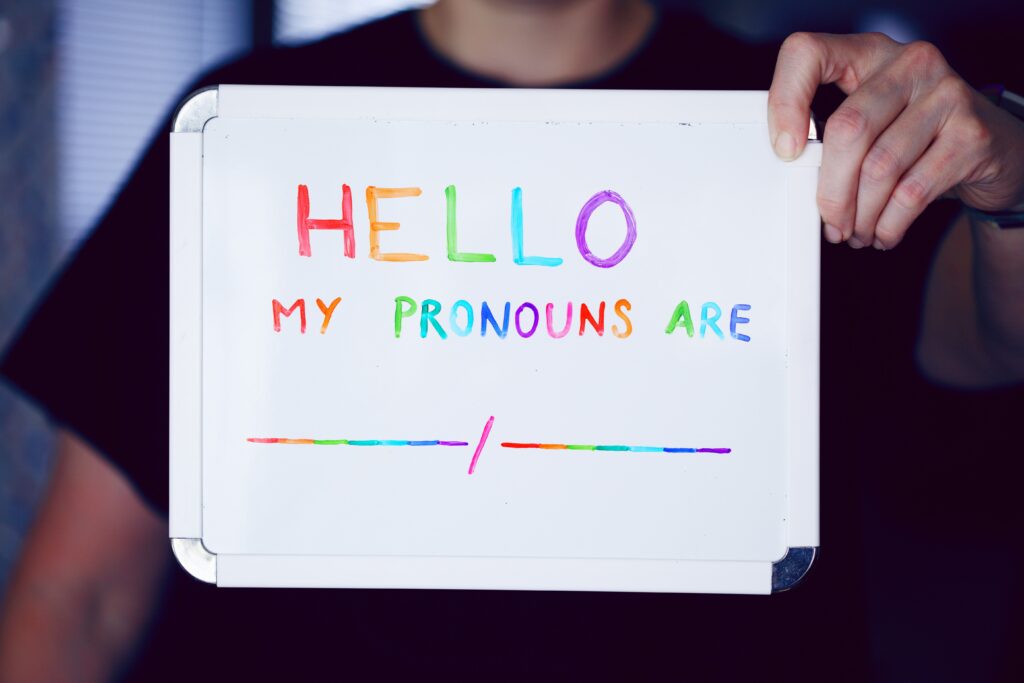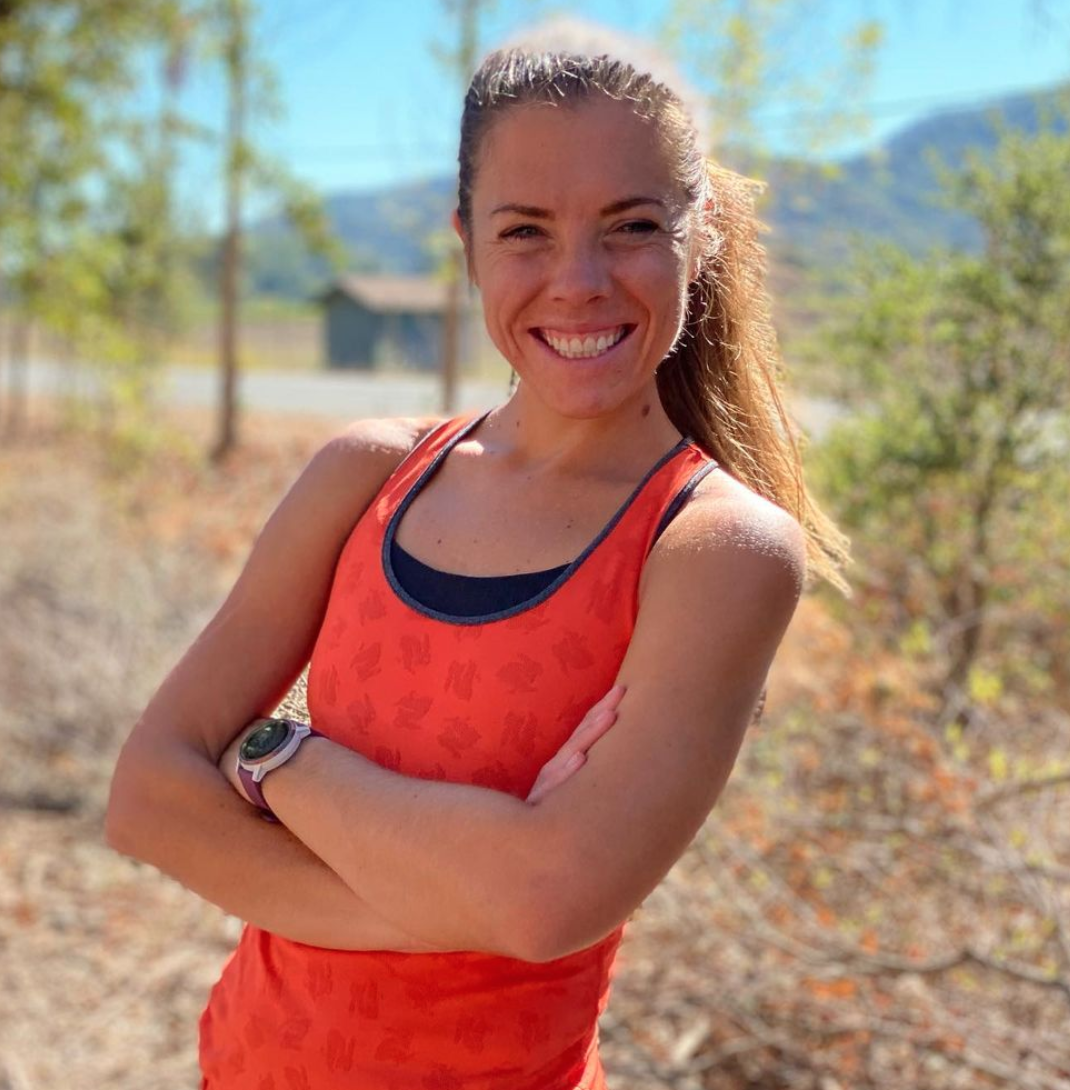Making Space at Start Lines

Triathlon is hard enough without worrying about what box you have to check at registration. But for Riley (they/them), a nonbinary trans athlete who’s been competing in triathlon for the last five years, racing means balancing a love for the sport with the realities of navigating gendered systems. From awkward check-in moments to unexpected community support, Riley shares what it’s like training, racing, and showing up fully as themselves.
How did you get started in triathlon?
I actually came into triathlon kind of sideways. I was a swimmer growing up, but I didn’t touch a pool for a few years after college. Then one of my friends convinced me to sign up for a sprint triathlon. I didn’t even own a bike: I borrowed one from a coworker and ran in old running shoes. But something clicked. I loved the challenge, the variety, and honestly, the chaos of transitions. Plus, growing up as a swimmer helped. I’ve been hooked ever since. If I had it my way, I would be able to compete every weekend, but responsibilities take over.
When did your gender identity start to intersect with your racing experience?
Pretty much from the beginning. I’m lucky that I came out way before triathlon. I say I’m lucky because before recently, it was a less hostile environment for trans athletes, and it’s not like I was winning races (or even podiuming). I think a lot of the triathlon crowd is more accepting, but it’s once it reaches online that the hostile commentary comes in. It’s like…these people aren’t even competing, why do they care?
Until recently, most races only offered “male” or “female” when I went to register, and neither felt right. I’d just kind of sit at the screen thinking, “What’s going to cause the least friction?” Because it never felt like there was a right answer.
ADVERTISEMENT

Have you ever had issues at races because of the category you registered in?
Yeah, unfortunately, more than once. It’s usually not outright discrimination, but it’s constant friction. At one race, I registered under my name and selected the women’s category because that was the only option that felt semi-okay at the time. When I showed up to pick up my packet, the volunteer looked at me and said, “Oh, I think you’re in the wrong line. The men’s is over there.” I had to explain, awkwardly, that I wasn’t. My personal advice to someone is: never assume a gender. If you truly believe that’s the case, don’t say anything and let me realize I’m in the wrong line.
Another time, a race printed my deadname on the bib even though I had updated my info online months before. I spent the morning trying to fix it while volunteers asked me over and over, “Wait, what’s your real name?” Like, I’m about to swim a mile and you’re making me justify my existence over a piece of paper.
There’s also the finish line stuff. A few races use gendered announcements like, “Here he comes” or “Here she comes,” and it’s…just jarring. You’re depleted, vulnerable, and suddenly someone’s misgendering you over a loudspeaker.
Even little things like porta-potty signs, separate gear check areas, or gendered swim cap colors can mess with your head. It’s not that I need the world to change overnight. But when all those things stack up, it’s hard not to feel like you’re constantly being reminded that you don’t quite fit.
Have any races offered a nonbinary category?
A few, and it’s honestly such a relief when I see that option. Even if I’m the only person in that division, it means someone thought about athletes like me. It tells me I’m not an afterthought. That I’m not just squeezing myself into someone else’s version of belonging. It doesn’t fix everything, but it helps. Plus, in the climate now, people think I’m trying to ruin women’s sports, and let me tell you…that’s the least of my concerns. Believe me, if there was a nonbinary category, I would sign up to be left alone. I’m just trying to have fun out there, and we both wish there was a nonbinary category.
What’s been the most supportive moment in your triathlon journey so far?
One race in particular: an Olympic-distance tri. The RD emailed everyone before the event to say they’d added a nonbinary division, and that anyone who wanted to switch could just email them directly, no questions asked. I did, and when I got to packet pickup, my bib had my name and “NB” printed on it. The volunteers used the right pronouns. I almost cried. I didn’t even care about my race time…I just felt seen.
And the hardest moment?
Honestly, it’s the accumulation of small things. The constant mental math of “Should I correct this person?” or “What’s the risk if I speak up?” Being misgendered when I’m already 10 miles into a race and struggling. Feeling like I have to justify my identity in addition to proving my fitness. It’s exhausting. I just want to race and have fun.
What do you want race directors and brands to understand about trans and nonbinary athletes?
That we’re not trying to make things complicated. We just want a space to exist where we don’t have to erase ourselves to participate. Offering a nonbinary category, training volunteers on inclusive language, letting people update their registration without jumping through hoops…these are small things that make a huge difference. I know it won’t change the world, but it can change my world and how nonbinary athletes view the race organization.
Also, most trans athletes are not trying to win. The narrative around “fairness” often ignores the fact that most of us are racing for ourselves, not for podiums. I have been on the podium twice in very small races (in one event there were only two people in my age group). I’ve not been on the podium in dozens of races, ha! I don’t care. I’m just trying to enjoy my hobby. We love this sport too. We deserve to be here.
How do you stay grounded and motivated through all this?
Community. I’ve met some really great people, other queer and trans athletes, especially, who remind me why this sport matters. When I’m on my bike or in the pool, I feel strong and free. Triathlon reminds me that my body can be powerful and capable, even in a world that tries to police it.
What advice would you give to another trans or nonbinary athlete thinking about doing their first triathlon?
Start with a race that feels local and manageable. Bring a friend if you can. And don’t be afraid to email the race director ahead of time: ask about categories, bathrooms, whatever you need to feel safe. If I’m unfamiliar with the race organization, I am going to email the RD to make sure I would feel safe and comfortable there. Sometimes, they really hadn’t thought a nonbinary athlete would sign up, and if you put that bug in their ear, they may create a separate category. You deserve to take up space. You belong in this sport. You don’t have to shrink or apologize.
What does success in triathlon look like to you?
It’s not about time or placement. Success is showing up fully as myself. It’s crossing the finish line in a body I’m still learning to love, in a space that doesn’t always make that easy. And if I can help open the door a little wider for the next person? Even better.
Conclusion:
Triathlon is already a tough sport, but navigating it as a nonbinary athlete adds another layer. Riley’s experience highlights the little things that can make a big difference:
Being called the right name
Feeling comfortable at check-in
Having the option to race as yourself.
None of it is about special treatment. It’s about creating space for more people to enjoy the sport without extra stress or hesitation.
ADVERTISEMENT

Hollie is a runner, hiker, swimmer, residing in California. She has worked in run specialty for nearly 8 years and has fit hundreds of people for shoes. Outside of the running world, she enjoys the general aviation world, her two cats, and spending time with her spouse.









